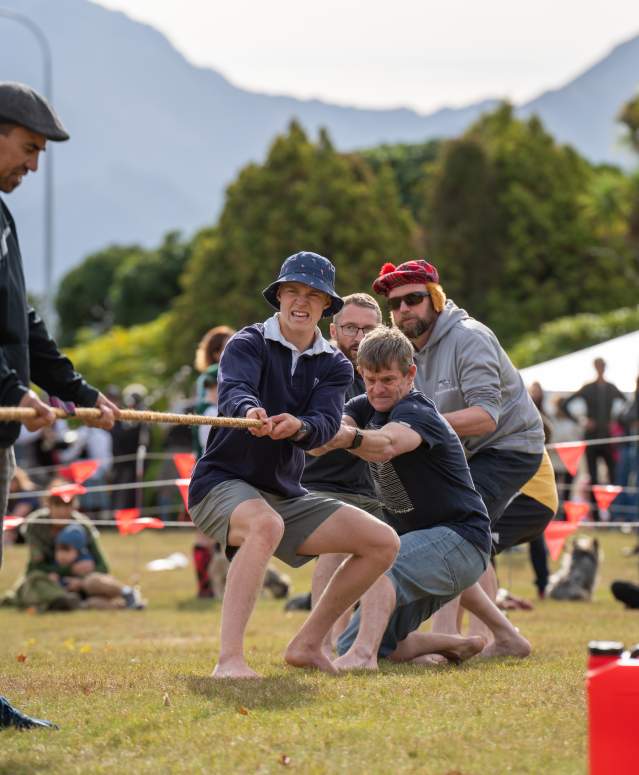Building Your Team
Behind every successful event is a dedicated team that works cooperatively to ensure all the event components come together effectively.
The roles you need in your team will depend on the event you are running. Teams can vary widely in size, often with team members covering more than one role or area of responsibility. A key consideration in the event planning process is ensuring there is an appropriate number of staff, with the relevant expertise to complete the required tasks for your event.
When building your team, maintaining an appropriate balance between autonomy and efficiency is important. While keeping things ‘in-house’ can mean you have greater control, in some cases it can be more efficient to outsource some aspects of the event organisation process to contractors or service providers.
Tips:
Event organisation team roles and responsibilities
While there is no one ‘right’ way to structure an event organisation team, there are often areas of responsibility that are common to most events, and roles most events will require. When creating your team structure, consider your event’s requirements and assign one or more roles to individuals that will make up your team, or split roles between multiple team members if required.
Event manager
The event manager is the driving force behind the event, responsible for guiding its vision and ensuring its success. They set the event’s goals, define objectives, and shape its overall direction. An event manager must be organised, adaptable, and a strong communicator to keep the team aligned and engaged.
Key responsibilities:
- Oversee the entire event planning and execution process.
- Be the main point of contact for team members and stakeholders.
- Manage the event budget and allocate resources.
- Make critical decisions about both conceptual and operational matters.
- Ensure the event stays on schedule and meets all deadlines.
- Address challenges and provide effective troubleshooting solutions.
Event coordinator
An event coordinator works closely with the event manager to ensure all aspects of the event planning process align with the event's vision. In larger teams, multiple event coordinators may be assigned, with each one responsible for overseeing specific areas of the event. They schedule meetings, track deadlines, and manage tasks to keep the event progressing smoothly. This role requires strong organisational skills and attention to detail.
Key responsibilities:
- Project-manage specific areas of the event organising process.
- Delegate tasks and oversee the work of event staff and projects.
- In some cases, support or fulfil some of the other roles listed below.
Marketing and communications manager
The marketing and communications manager will oversee all external-facing communications and promotional material. They work closely with the designers to create a consistent and appropriate aesthetic and brand for the event, and link this with communications and messaging that clearly portrays the event’s identity.
Key responsibilities:
- Create and execute a marketing plan for the event.
- Manage social media, email marketing, and other promotional activities.
- Handle public relations and media inquiries.
- Ensure consistent and effective communication with attendees and stakeholders.
Site and logistics manager
This role oversees the practical elements of an event, such as venue set up and pack down, transportation, equipment, signage, and seating. They will be the main point of contact for most contractors and are responsible for overall health and safety planning.
Key responsibilities:
- Schedule and liaise with event staff, contractors, vendors, venue staff, security, and other stakeholders to ensure an efficient flow of operations throughout the set up, delivery and pack down stages of an event.
- Ensure all necessary event equipment and supplies are available and functional when required.
- Create and implement the overall event health and safety plan and conduct daily ‘toolbox meetings’ to ensure staff and contractors are aware of any specific hazards on site.
Production manager
For events that require audio-visual production installations, the production manager will make decisions and be responsible for the build, operation, and pack down of these event elements, working closely with contractors.
Key responsibilities:
- Liaise with event staff and contractors around production aspects.
- Lead the production set up, operation, and removal.
- Work closely with the site and logistics manager to implement the event health and safety plan.
Volunteer coordinator
The volunteer coordinator recruits, trains, and organises volunteers. This role may be part of the event coordinator’s role, or the volunteer coordinator may work closely with the event coordinator to delegate tasks that are required for the event to run smoothly. A genuine caring nature, as well as firm but fair boundary setting are positive attributes that a volunteer coordinator should embody.
Key responsibilities:
- Source volunteers and train them for specific tasks.
- Delegate tasks and organise volunteers throughout the various stages of the event.
- Ensure volunteers have a safe and fun environment to work in.
- Provide references for volunteers regarding work experience.
Safety and security manager
The safety and security manager coordinates efforts to ensure a safe and secure event environment, in collaboration with security staff, first aid personnel and emergency services. This role may be split into safety and security, depending on the scale and type of event.
Key responsibilities:
- Develop a safety and security plan for the event.
- Coordinate with local law enforcement and security personnel.
- Ensure compliance with safety regulations and protocols.
- Manage any incidents or emergencies that arise during the event.
Ticketing and registrations manager
Ticketing and registrations can often be more efficiently delivered via external service providers. However, having a dedicated ticketing role in your team can ensure your guests’ ticketing or registration experience goes smoothly.
Key responsibilities:
- Manage the registration and ticketing process.
- Ensure a smooth check-in experience for attendees.
- Handle any issues related to ticketing or registration.
Hospitality and vendor manager
Large events may need a dedicated hospitality and/or vendor manager to coordinate the delivery of essential food and beverage services and accommodation requirements for attendees, guests, artists and others.
Key responsibilities:
- Arrange accommodation and transportation for VIPs and special guests.
- Coordinate catering and food services.
- Ensure the comfort and satisfaction of all attendees.
Other roles and responsibilities
The following roles may be incorporated within or be additional to the above roles:
- Sponsorship/partnership manager – responsible for securing and managing sponsorship and partnerships for your event. This role can support or be part of the event manager role or marketing and communications manager role.
- Venue coordinator – responsible for coordinating the logistics for events held at a venue. This role can support the site and logistics manager.
- Programme coordinator – responsible for planning and managing the event programme and activities within. This role can support or be part of the event coordinator role.
- Marketing coordinator – responsible for coordinating the marketing activities of an event. This role can support the marketing and communications manager.
- Merchandising coordinator – responsible for coordinating event merchandise. This role can support or be part of the event coordinator role.
- Duty manager – for events where alcohol is supplied or sold, the duty manager is responsible for complying with the Sale and Supply of Alcohol Act and conditions of the alcohol licence. This role can support or be part of the hospitality and vendor manager role.
Useful links
- Download an events team structure example.
Have you considered?
- What roles are required to effectively manage your event? Write a list of required tasks to determine the roles and responsibilities.
- Is it more efficient to outsource some aspects of your event organisation process to contractors or service providers?
- How will you recruit the relevant roles for your event? Don’t forget to consider volunteers and fundraising groups as part of building an effective events team.

